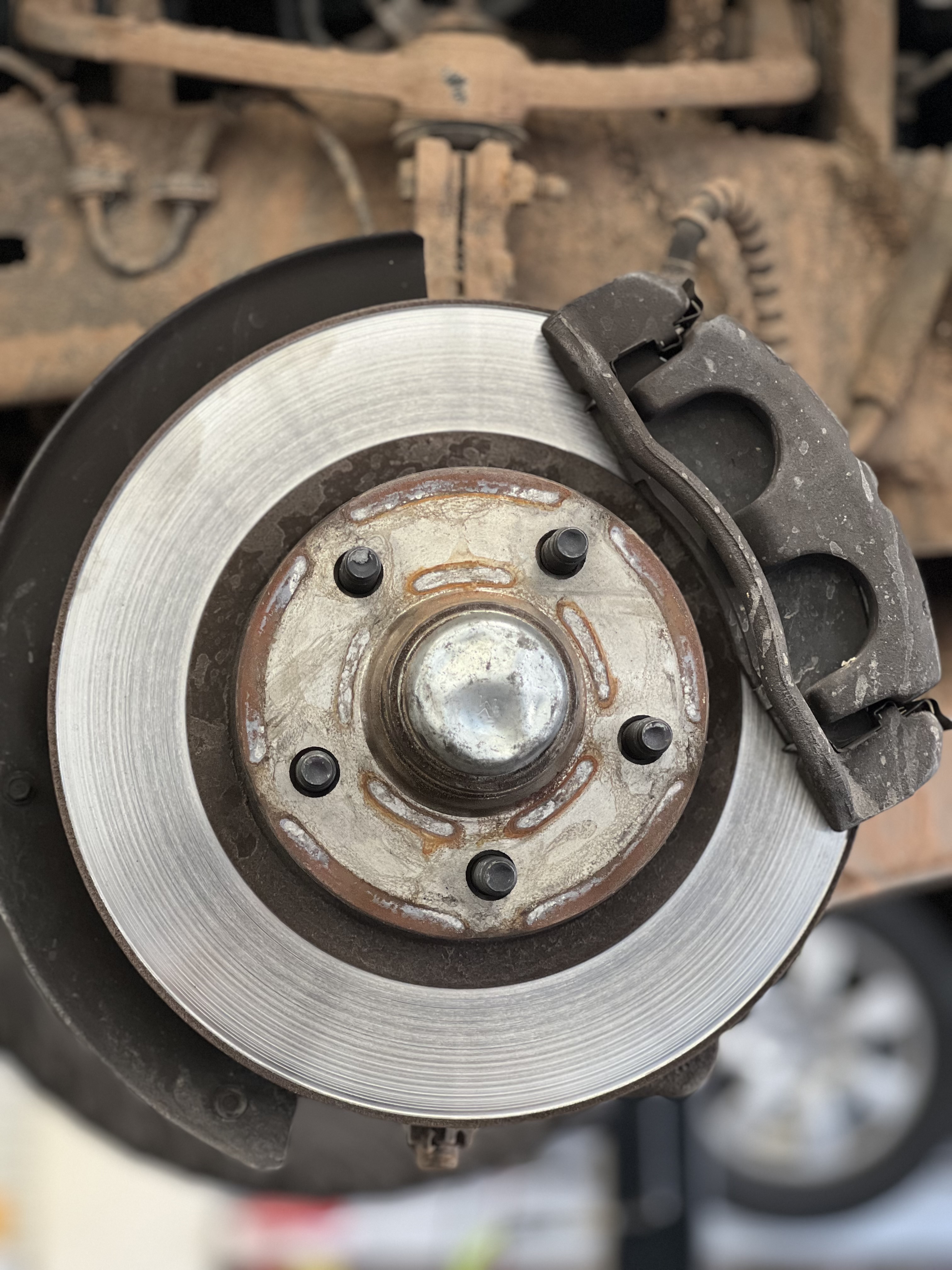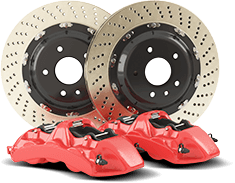Posted on 11/4/2024

Your brakes are one of the most critical safety components of your vehicle. If you suspect that your brakes are going bad, it's essential to address the issue immediately to ensure your safety and the safety of others on the road. At St. George Transmission, we understand the importance of reliable brakes, which is why we check brakes as part of our complimentary inspection on every car. Here’s what to look for and what to do if you think your brakes are failing. Signs That Your Brakes Might Be Going Bad Squeaking or Squealing Noises: One of the most common signs of brake issues is a high-pitched squeak or squeal. This noise often indicates that the brake pads are worn and need to be replaced. Grinding Sound: If you hear a grinding noise when you apply the brakes, it can mean the brake pads are completely worn out, and the metal parts of the brakes are rubbing against each other. This can damage your rotors and should be addressed imm ... read more
Posted on 10/31/2024

As Halloween approaches, it's not just ghosts and goblins you need to watch out for. Your car might have some spooky issues lurking under the hood! At St. George Transmission and Automotive, we want to make sure you’re not haunted by unexpected car troubles. Here are five spooky things to look for on your car this Halloween to keep your vehicle in top shape. 1. Screeching Sounds Eerie, high-pitched screeches are not just for haunted houses—they can also come from your car! If you hear a screeching or squealing noise when you brake, it might be your brake pads crying out for help. Worn brake pads can lead to serious safety issues, so don't ignore this spooky sound. Bring your car to St. George Transmission and Automotive for a brake inspection to avoid any terrifying brake failures. 2. Mysterious Lights Your dashboard can light up like a Halloween pumpkin when something goes wrong. If you see the check engine light or other warni ... read more
Posted on 10/22/2024

Seeing your check engine light turn on can be alarming, but it’s a common issue that many drivers face. While it might be tempting to ignore it, addressing the problem early can prevent more serious and costly repairs down the road. If your check engine light comes on, here's what you need to know and why you should visit St. George Transmission and Automotive for testing. Why Did My Check Engine Light Turn On? The check engine light is your car’s way of telling you that something isn’t quite right. It could be something minor, like a loose gas cap, or something more serious, like a problem with the engine or emissions system. Common reasons for the check engine light to turn on include: Loose or Faulty Gas Cap: A loose gas cap can cause fuel vapors to leak, triggering the check engine light. Oxygen Sensor Issues: This sensor monitors the amount of unburned oxygen in your car’s exhaust. If it’s not working properly ... read more
Posted on 10/8/2024

Your vehicle's brakes are undoubtedly one of the most critical components when it comes to safety on the road. From daily commutes to long-distance travels, they play a pivotal role in ensuring you can stop your vehicle safely and swiftly when needed. However, like any mechanical part, brakes can wear down over time, potentially compromising their effectiveness and putting you at risk. To maintain optimal brake performance and ensure your safety on the road, regular brake inspections are essential. But how often should you get your brakes inspected? Let's delve into this question to provide you with a comprehensive guide. Factors Influencing Brake Inspection Frequency Several factors influence how often you should have your brakes inspected: Driving Habits: Your driving habits play a significant role in brake wear. If you frequently drive in stop-and-go traffic or navigate hilly terrain, your brakes will experience more wear and may require mo ... read more
Posted on 9/16/2024

When it comes to automatic transmissions, there are two main types: regular automatic transmissions and continuously variable transmissions (CVT). While both types of transmissions perform the same basic function of transmitting power from the engine to the wheels, they do so in different ways. A regular automatic transmission uses a series of gears to change the gear ratio between the engine and the wheels. Each gear is a fixed ratio, meaning that there is a specific number of teeth on the gears that determines the ratio. When the transmission shifts gears, it disengages one gear and engages another, providing a different gear ratio to match the vehicle's speed and engine RPM. In contrast, a CVT transmission uses a system of belts and pulleys to continuously vary the gear ratio. Instead of fixed gears, the CVT transmission has two pulleys with adjustable diameters connected by a belt. By changing the diameter of the pulleys, the CVT can vary the gear ratio continuous ... read more